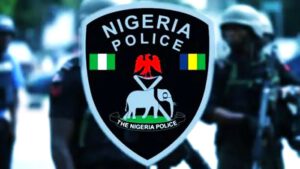The Catholic Bishops Conference of Nigeria (CBCN), yesterday, told President Muhammadu Buhari that his goodwill among Nigerians was fast depleting because of the glaring failures of his administration. The Catholic clerics, who were at the Aso Rock Presidential Villa on a visit, told the President in very blunt language that Nigerians at the grassroots were angry with him and his government.
They listed the growing economic hardship, mass unemployment and general insecurity as some of the grievances they had come to convey to him as the voice of the voiceless in the society. The clergymen, led by Archbishop Ignatius Kaigama, the President of CBCN and Bishop of Jos Archdioceses, said that as the President, Buhari ought to be the father of everyone in Nigeria.
He, however, said that his handling of key national issues, particularly the herdsmen/farmers clashes have left many Nigerians confused as to their place and faith in the country. Kaigama noted that as “loyal citizens as well as informed members of the society” who work with the people at the grassroots, they were at State House to share with him the feelings of the multitude of Nigerians at the moment.
“There is no doubt that when you came into office, you had an enormous amount of the goodwill of Nigerians, since many saw you as a person of integrity who would be able to bring sanity into a system that was nearly crippled by endemic corruption.
“Nearly three years later, however, one has the feeling that this goodwill is being fast depleted by some glaring failures of government, which we have the moral responsibility to bring to your notice, else we would be failing in our duty as spiritual fathers and leaders. “Your Excellency, there is too much suffering in the country: poverty, hunger, joblessness, insecurity, violence, fear… the list is endless. Our beloved country appears to be under siege. Many negative forces seem to be keeping a stranglehold on the population, especially the weaker and defenseless ones.
“There is a feeling of hopelessness across the country. Our youths are restive and many of them have taken to hard drugs, cultism and other forms of violent crime, while many have become victims of human trafficking. The nation is nervous,” Kaigama said. The bishops observed that while it appeared as if the country was gradually emerging from an economic recession that caused untold hardship to families and individuals, violent attacks by terrorists masquerading as herdsmen have led to a near civil war situation in many parts of the country.
“We are saddened that, repeatedly, innocent citizens in different communities across the nation are brutally attacked and their sources of livelihood mindlessly destroyed. Lives are wasted and property worth billions of naira, including places of worship, schools, hospitals and business enterprises are torched and turned to ashes. We are still more saddened by the recent massacre of unarmed citizens by these terrorists in some communities in Benue, Adamawa, Kaduna and Taraba states which has caused national shock, grief and outcry.
“The silence of the Federal Government in the wake of these horrifying attacks is, to say the least, shocking. There is a feeling of helplessness among the people and the danger that some people may begin to take laws into their hands. “We, therefore, earnestly urge the government to take very seriously its primary responsibility of protecting the lives and property of its citizens and ensure that such mindless killings do not reoccur. “Herdsmen may be under pressure to save their livestock and economy, but this is never to be done at the expense of other people’s lives and means of livelihood.
We would like to add our voice to those of other well-meaning Nigerians who insist that a better alternative to open grazing should be sought rather than introducing “cattle colonies” in the country. While thinking of how best to help cattle owners establish ranches, government should equally have plans to help the other farmers whose produce is essential for our survival as a nation,” the clerics said.
They urged the government to invest more in equipping the Police Force with modern high-tech devices that could help them track down and arrest these criminals and make them face the wrath of the law. They accused the Buhari administration of breaching the Federal Character Act in its appointment of persons into positions and recruitment for the few slots available in the public service. The Federal Character Principle is enshrined in Section 14, Sub-section 3-4 of the 1999 Constitution of the Federal Republic of Nigeria.
The relevant section states thus: “The government of the Federation or any of its agencies and the conduct of its affairs shall be carried out in such a manner as to reflect the federal character of Nigeria and the need to promote national unity and also to command national loyalty, thereby ensuring that there shall be no predominance of persons from a few states or from a few ethnic or other sectional groups in that government or in any of its agencies.”
According to the Catholic Bishops, the disregard of this principle in some Federal Government’s appointments as well as perceptible imbalance in the distribution of federal amenities has created the loss of a sense of belonging in many parts of the country, leading to the constant cries of marginalization, agitation for secession and calls for restructuring. In a veiled reference to Buhari’s bid to seek reelection even in the face of so many unresolved challenges of his administration, the clerics said that addressing the current state of uncertainty and restoring citizens’ confidence in the country was more important than seeking a fresh mandate.
“These and many more such problems are, in our opinion, grave matters that should be worrying all political leaders in our country today, rather than any bid for re-election. “We strongly feel that everybody in government at this moment has to take more decisive steps to restore the confidence of the Nigerian people,” they said.
In response to these blunt submissions, President Buhari said the controversy trailing the “cattle colony” policy proposed by his administration was surprising as it was not meant to colonize any part of Nigeria. According to him, the intention of the government was to create grazing locations for cattle rearers, in order to prevent them from roaming indiscriminately and destroying crops and farm produce.
Buhari lamented that the well-thought out policy of the Federal Government, which was conceived after wide consultations with stakeholders, had been largely misunderstood by a section of the public who now misconstrued it as another form of colonization. He, however, assured the Catholic Bishops that the Federal Government will continue to explore all opportunities and support initiatives that would ensure peace and stability across the country. He condemned the recent spate of killings in Benue, Adamawa, Taraba, and Zamfara states.
The President said that security operatives would ensure prosecution of perpetrators and all those found with illegal arms in the affected areas. “The impression created that I was sitting in an air-conditioned office and home, enjoying myself while these things happened, is dishonest. “At every step, I have tried to foresee these problems because I have the experience as a former military officer who commanded three out of the four divisions of the Nigerian Army, in Lagos, Ibadan and Jos. “I am quite aware of the problems we have and I am doing my best to get law enforcement agencies to be on alert,” he said.
The President told the Catholic Bishops that he would not be tired of recounting remarkable progress recorded in the areas of security, economy and the fight against corruption. “We have done very well on security in the North- East, when you compare what the condition was before we came in and what it is now. “On the economy, particularly agriculture, I am very pleased that God answered the prayers of Nigerians who prayed for bountiful harvest.
“People have taken advantage of Federal Government policies and programmes to return to the farm and they have not regretted,” he said. On the fight against corruption, the President reiterated that government would be guided by the law in the investigation and prosecution of all graft related cases.
“People are being prosecuted systematically with evidence. If a permanent secretary has five houses in Abuja, two in Kaduna and one in Borno and Sokoto and he can’t account for the properties and there are bank transactions linking him to the properties, the prosecuting agencies will not have difficulties to make progress on the case,” he said. The President said that contrary to the charge that he had serially violated the Federal Character Act, no ethnic group or political zone has been deliberately marginalized in the appointments made so far. He, however, promised to take a second look at areas on which issues have been raised, when a compendium of all government appointments is submitted to him.



